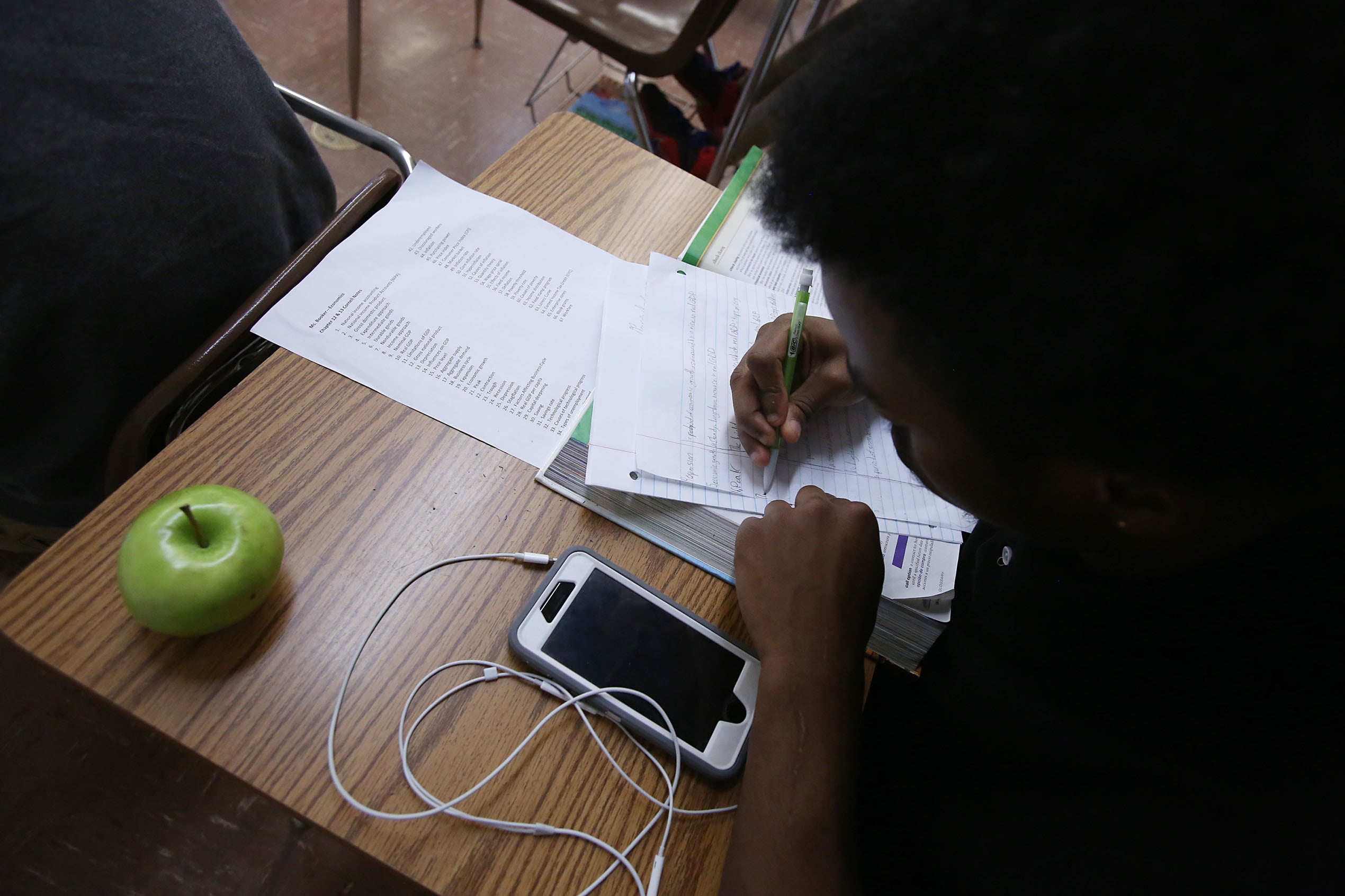School cell phone policies are under the microscope nationwide. We want to hear what’s happening at your New York City school.
When students returned to in-person classes after learning remotely during the pandemic, some educators noticed that kids were increasingly attached to their phones. Now, more schools are experimenting with systems to keep phones out of students’ hands during the school day.
And in New York City, Mayor Eric Adams has railed against the dangers of social media for children’s mental health, declaring it a public health risk and filing a lawsuit against five leading social media companies.
But efforts to ban or curb cell phone use in schools have also generated significant pushback. Some parents worry they won’t be able to reach their kids in emergencies, while some students and educators say restrictive rules rob them of a critical tool and opportunities to use technology responsibly.
At Chalkbeat New York, we’re hoping to dive deeper into how schools are handling cell phones. We want to learn more about the policies schools are adopting – or avoiding – and the benefits and drawbacks of those approaches. Please fill out the short survey below to help direct our reporting.







